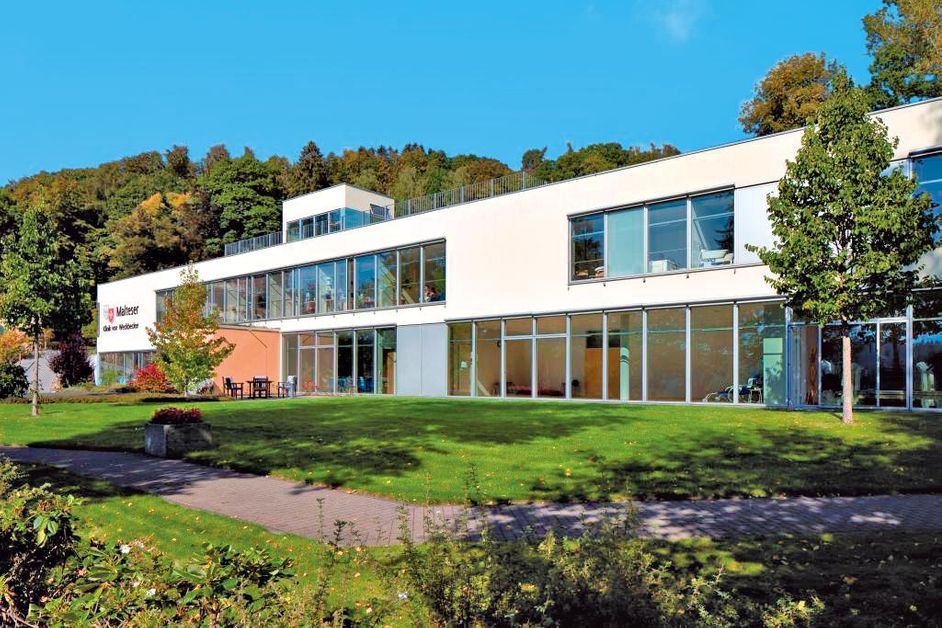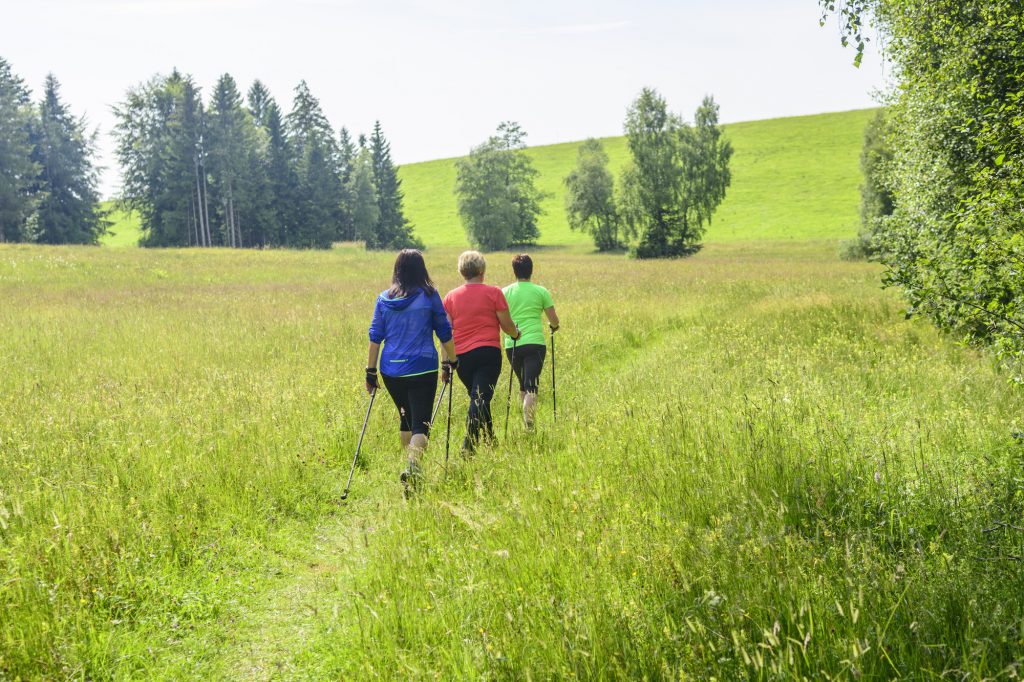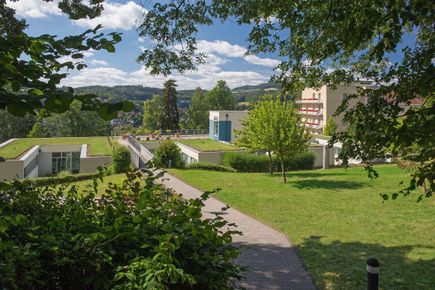This time we received valuable support from Dr. Matejka. He is the head physician of the Malteser Klinik von Weckbecker in Bad Brückenau and fasts regularly himself. His new book “Fasting heals” (available in German, “Fasten heilt”) has recently been published. You can get a small preview of it in this interview! This interview has been translated from German.

Dear Dr. Matejka, thank you very much for taking the time to answer our questions today! You are the head physician of the Maltester Klinik von Weckbecker, which is one of the leading clinics for natural healing methods. You yourself were once a student of Dr. Erich Weckbecker. What impressed you most about his work?
In German there is a saying regarding one’s passion: “you yourself have to burn in order to set fire to others.” This applies to Dr. von Weckbecker. Undeterred by a lot of resistance and opposition from colleagues, he consistently and successfully implemented his concept of combined therapeutic fasting with accompanying biological treatments such as physiotherapy and, above all, Kneipp methods – over many decades.

This is where Dr. Rainer Matejka, head physician of the Malteser Klinik von Weckbecker, practices
Your new book “Fasting Heals” is about the healing effect of fasting. To what extent can fasting actually achieve a healing effect and not just alleviate ailments? And do you actually fast regularly yourself?
Especially in the case of lifestyle-related disease patterns, in which nutritional issues always play an important role, therapeutic fasting can actually have a beneficial healing effect. To think of what we call “metabolic syndrome”. This includes obesity, type 2 diabetes, high blood pressure and other risk factors for the heart. People who feel “the joints”, as a sign of incipient osteoarthritis, also benefit from preventive treatment. We also achieve good results with migraine.
With other systemic diseases, e.g. chronic inflammatory rheumatic diseases, but also partly neurological diseases such as MS or Morbus Parkinson, we can achieve relief. This means that the disease has not disappeared, but the patients feel better. The Parkinson patient reports for example that the stiffness, which particularly loads many Parkinson patients, became better. Fasting also has a good and lasting effect on states of exhaustion and the desire for a “reset”, as is being expressed more and more frequently today. I myself have been doing interval fasting regularly for quite some time – about 3x/week.

Fasting is supposed to help with autoimmune and skin diseases, as well as neurological diseases. In which areas do you think fasting promises particularly good chances of success? Where, on the other hand, are the limits to how fasting can help?
The limits of fasting are, of course, where there are possible contraindications. This applies, for example, to numerous psychiatric diseases, especially schizophrenia, anxiety-panic attacks, obsessive-compulsive states, delusions. Also manifested cancer is considered a contraindication. Certainly, lowered body weight per se is also a contraindication, as well as old age.
We do it in such a way in our center that we do not let patients fast without previous fasting experience starting at the age of 75 at the latest. But even with experienced fasters we draw the line at the age of 85 at the latest, which is by no means always well received by the patients…
Could you explain to us what processes are triggered in the body during fasting? Why is occasional abstention from food so healthy?
For decades, the fasting effect was explained by detoxifying and purifying effects. These colloquial expressions are not accepted by modern scientific medicine. Through the basic research of recent years we know more.
Every human cell goes through a genetically controlled self-cleansing process: it is capable of wrapping up and excreting unnecessary components, e.g. proteins, or recycling what is still usable. In other words, a kind of self-repair. With increasing age this self-repair ability decreases and illnesses become more frequent. Fasting is the way to stimulate this self-repair ability again.

According to newer findings, even shorter fasting durations, sometimes only 1 day or 2 days, or even the intermittent fasting that is becoming more and more fashionable, in which breakfast or dinner are usually omitted, show a corresponding change in the metabolism. We speak of the metabolic switch: the body then draws its energy increasingly from the burning of fatty acids and not only from the utilization of carbohydrates. This “switch” activates important metabolic and immune processes.
How long do you have to fast to achieve the first results? And how long do you benefit from the fasting regimen? Is it worthwhile to incorporate smaller fasting intervals into everyday life in order to feel a lasting improvement in health?
In the past, 21 days of fasting and one week of refeeding were carried out here in the clinic. Today, due to time constraints, this only takes place in exceptional cases. Most patients are only in the clinic for about 10 days. However, we know from recent research that even one week of therapeutic fasting can be effective. Of course it depends on the medical condition of the patient. A chronically inflammatory medical history surely needs a longer fasting of at least 14 days initially, in order to create a basis for further successes. Afterwards it is worthwhile to follow up with an additional fasting week at least 1 – 2x a year. We speak of gradual healing through fasting, which is more effective than carrying out a longer fasting treatment every few years.

However, in order to stabilize success or for prevention, shorter fasting intervals are also worthwhile, such as one juice fasting day/week or the 5/2 principle, i.e. two relief days/week on which, for example, only vegetables and/or potatoes are consumed.
What new insights did you come across as a result of your intensive study of the subject of fasting and healing while writing your book? Feel free to give our readers a little preview.
I mentioned the metabolic switch, the change of metabolism from carbohydrate utilization to ketone body utilization. Whereas in the past it was believed that these were inferior, if not dangerous substances, in recent years a number of positive effects have been seen. There are even already studies, which consider such a mild Ketose as favorable particularly for the brain, from which even people suffering from dementia can profit. The body evidently has a kind of hybrid system for energy utilization.
The Malteser Klinik combines natural healing methods with conventional medicine. Why is this combination so promising? And what is the truth of the statement that conventional medicine often only combats the symptoms of suffering, but not the root cause?
The combination of naturopathic treatments with conventional medicine is useful and necessary above all because we can combine the possibilities of conventional medical diagnostics and their acute medical treatment options with the often causal strategies of naturopathy. Lifestyle change is at the center of this. The WHO (World Health Organization) considers lifestyle change to be a prerequisite for health care systems to remain financially viable in the future.
With which complaints do guests come most frequently to your clinic? How long do they stay and which fasting programs are most popular?
Meanwhile, very many people come with the desire for a so-called “reset”. The reason for this is the wide range of stressors that come from modern life. Very often, patients come to us with all kinds of orthopedic problems, where we see that much of what is attributed to “wear and tear” in the area of the spine or joints is actually caused by muscular tension. This opens up completely new approaches to pain therapy, for example, and physiotherapy plays a major role in our clinic.
The Malteser Klinik’s fasting retreats range from classic therapeutic fasting to intermittent fasting and fasting hikes. Which fasting regimen do you recommend to absolute fasting novices?
Generally speaking, all of the above-mentioned methods are suitable for the fasting novice. However, especially when fasting hiking, of course, sufficient fitness and walking ability and, for example, no acute cardiovascular disease with cardiac arrhythmia should be present.

Fasting for beginners: Some people like to get to know fasting or detox by trying it in the comfort of their home. What do fasting beginners absolutely need to know before you start with the body cleansing from the inside?
We often recommend patients to switch days, i.e. before the beginning of a fasting program, one eats e.g. 2 – 3 days only potatoes and vegetables or rice and vegetables, in addition perhaps a high-quality vegetable oil, but no animal protein and certainly no convenience food. This already leads to a quite good detoxification and decongestion and enables an easier transition into juice fasting.

However, if you have never fasted before, you should not do it completely alone. I recommend joining a fasting group. Otherwise this statement from the well-known fasting physician Hellmut Lützner applies: we distinguish between preventive fasting for those who are still healthy and therapeutic fasting in the true sense for those who are already ill. The former is usually accomplished as an outpatient, the latter should be accomplished rather in a clinic as an inpatient.
Fasting newcomers should also be informed about the contraindications of fasting and be aware of them: One shouldn’t “just” quickly start a fast, but one should prepare mentally for the endeavor, especially when it comes to therapeutic fasting.







